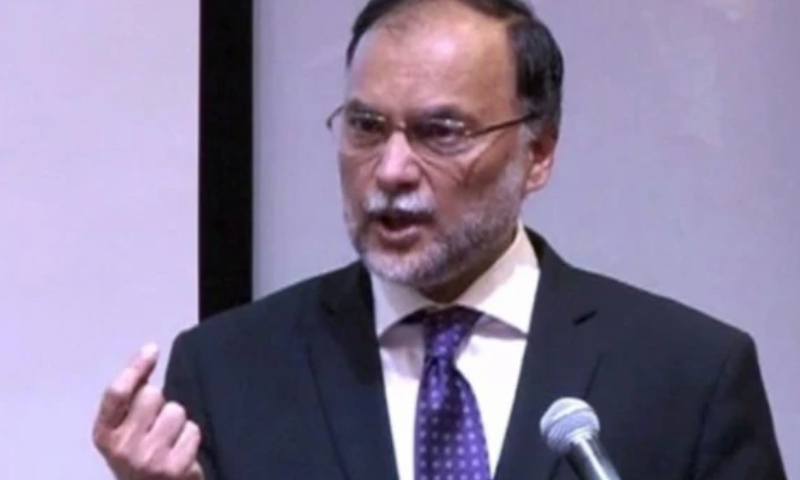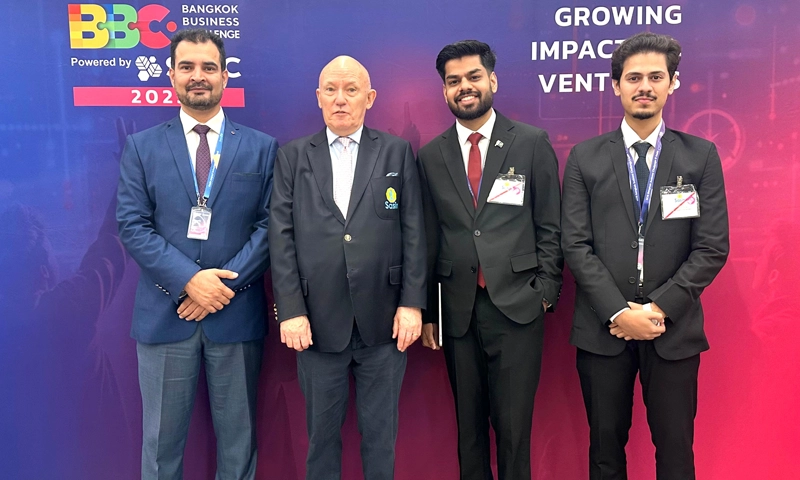- Web Desk
- Jun 05, 2025
Private sector and CMWs can reshape family planning in Pakistan
-

- Web Desk
- Nov 03, 2023

ISLAMABAD: The media has been called upon to play a pivotal role in urging federal and provincial governments to collaborate with family physicians and pharmacies in order to enhance access to contraceptives and family planning services.
Involvement of Community Midwives (CMWs) was also emphasised in providing family planning services which can be a significant step towards helping impoverished rural women, who face higher unmet needs for family planning and accessibility challenges. This was discussed during the Media Coalition Meeting organized by the Population Council with the support from UNFPA here in Islamabad.
Media Coalition comprises of media persons from all provinces representing all major media outlets of Pakistan. The coalition highlights the cross sectoral impact of rapid population growth periodically to raise awareness and hold governments accountable for improving the wellbeing of the people.
In his welcome remarks, Population Council Senior Director Programs Dr Ali Mir said that recently concluded 2023 Census has counted 241.9 million people in Pakistan with an annual intercensal growth rate of 2.55%. This has raised considerable concerns regarding continuing high rates of population growth and slow progress in bringing any change in the last five years despite the CCI decisions of 2018.
“Media can advocate for improving access to family planning services by highlighting the importance of involving private sector and delivering services at grassroots level through their reporting and media coverage,” he said. Dr Mir added that leveraging the untapped potential of Community Midwives (CMWs) is also crucial to improve the access of family planning services across the country. “These two areas can be game changers for FP Service Delivery and improving Contraceptive Prevalence Rate (CPR),” he said.
The Population Council, through its research, has shown that both approaches are workable. By engaging private sector providers an increase was seen in clients who wanted to avail family planning services. It also led to a substantial increase in the sale of contraceptives products. The research has opened a new service delivery channel that needs to be upscaled in order to enhance access to family planning services.
Explaining Population Council’s experience on engaging Community Midwives (CMWs) to expand family planning services in rural communities of Sindh, Project Director Samia Ali Shah, said, “CMWs and LHWs working in tandem to reduce the unmet need of family planning can be a game-changer for Pakistan”.
She observed that best time for family planning counseling and service provision is during women’ visits to CMWs for ante-natal (ANC), natal, and postnatal care (PNC). She urged the media to highlight, through reporting and coverage, plight of poor rural women need better access to service delivery in rural areas of the country and influence governments to engage CMWs in areas where they are already working and initiate CMWs programs where they are not present.
Sharing the data of private sector study, conducted to enhance family planning services in rural areas of Islamabad, Team Lead and Sector Specialist-Health Dr Nauman Safdar said that engaging the private sector in family planning service delivery could rapidly enhance access to services and reduce unmet need.
“Service delivery through male family physicians stimulates male engagement in crucial decision of birth spacing in a family as well as in the society”, he noted. He observed that low uptake of contraceptives is a major contributor to Pakistan’s high maternal, child, and infant mortality. It also contributes significantly to alarming stats of malnourishment of the country where one in seven women are undernourished and 42% of Women of Reproductive Age are anemic. Similarly, 62 infants die (out of 1000 live births) before reaching one year of age and 40% of children under the age of five are stunted.
Participants of the meeting pledged to use media as an effective tool in pressing governments to meet the unmet need for family planning among the poorer women. They also called on federal and provincial governments to ensure the supply of contraceptives and greater involvement of the private sector and community health workers, i.e. LHWs and CMWs, in family planning service provision.
They also agreed to play a positive role in increasing awareness around enhancing access of reproductive health information and services to married couples in Pakistan as media campaigns could impress upon the governments to ensure availability of contraceptive and trained staff at all health outlets.
For more information, please contact: Ikram Ul Ahad, Senior Communications Officer, (Email: [email protected]) and cell: 0333 5744123




